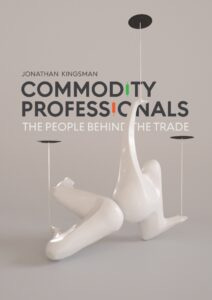1/ Could you share what you do today and your career journey so far?
My first foray into the sugar market was long ago at Louis Dreyfus when they told me to move from the Grain Department to Sugar. I was initially a grain analyst, covering UK wheat and barley. LDC asked me to sit at the sugar desk and learn about sugar. Somebody threw me the Kingsman report to read. It was my first introduction to the sugar market!
I've been in sugar analysis for around 30 years, working for various tradehouses and hedge funds. I am now an independent analyst for DNext, a digital platform based in Switzerland. We aim to simplify data collection and provide more efficient ways of analyzing the market. We cover agricultural commodities such as grains, oilseeds, and sugar.
2/ How have information providers evolved over the years regarding what they offer?
Everybody's always been looking for the basics of crop analysis and trade flow data,
Data providers have moved downstream and now do more crop survey work. Your data provider now has a better handle on crops than in the past when only tradehouses had the complete overview of crop numbers. People can now access crop information more readily than in the past.
The provision of trade flow data has remained relatively unchanged over the last twenty years. In the future, I see room for a digital platform to consolidate trade flow data and make it more straightforward to assemble a consolidated trade flow.
We're trying to forecast crops, and I'm unsure how big data helps. You've got to get your feet dirty, get out on the ground, and try to understand acreage. That's where errors can occur. You don't notice the switches from one crop to another if you're not on the ground. Fundamental analysts have a critical role and will, hopefully, survive!
3/ Did you ever trade sugar?
It's a difficult question to answer as it depends on what you mean by 'trade'. If you work for a hedge fund, which I did, you provide trade ideas to a portfolio manager and then to a team of execution traders. There have been brief periods during my career when I have run a small proprietary book. It can be fun, but you can spend too much time screenwatching. So, I've always stepped back, providing trade ideas for the execution traders or the portfolio manager. People not involved in the business struggle with the difference between a trader and an analyst. I think the best traders are also analysts. So it's a merger of the two.
4/ What's a common mistake people make when analyzing the sugar market?
They are not spending enough time understanding consumption. It's easier to follow crop numbers. Consumption involves a detailed analysis of monthly stocks, imports, and exports. It's hard work. The other problem is that people consume white sugar, not raw sugar; monitoring white sugar trade flows is more complicated than monitoring raw sugar trade flows. The key to success is to get to grips with the white sugar balance sheet, which flows back into a raw sugar balance sheet. It's been a massive issue for the last seven or eight years, with consumption falling in the developed world.
The challenge with consumption data is that an error can multiply through your balance sheet. A considerable demand shock, like COVID-19, can impact the quality of your consumption analysis. Consumption sets a good analyst apart from a bad analyst. The trade house analysts are often the best as they see the white sugar flows.
5/ What advice would you give someone struggling to stay on top of sugar market analysis?
I would advise them to continually seek new information and to stay on top of production, not just in the key countries but in the top twenty producers.
Get out into the field, meet producers, and build relationships. One thing that has benefited me over the years is that the trade houses I've worked for have allowed me to travel. To understand production, you must get out there and meet cane and beet producers. The meeting at the mill is vital to understanding the market.
If you are a trader and expect your analysts to build a decent balance sheet, take them with you when you meet your clients in the supply chain.
My daughter Charlotte conducted this interview as part of the ECRUU series of podcasts.
© Commodity Conversations® 2024
My latest book, Commodity Professionals - The People Behind the Trade, is now available on Amazon.




